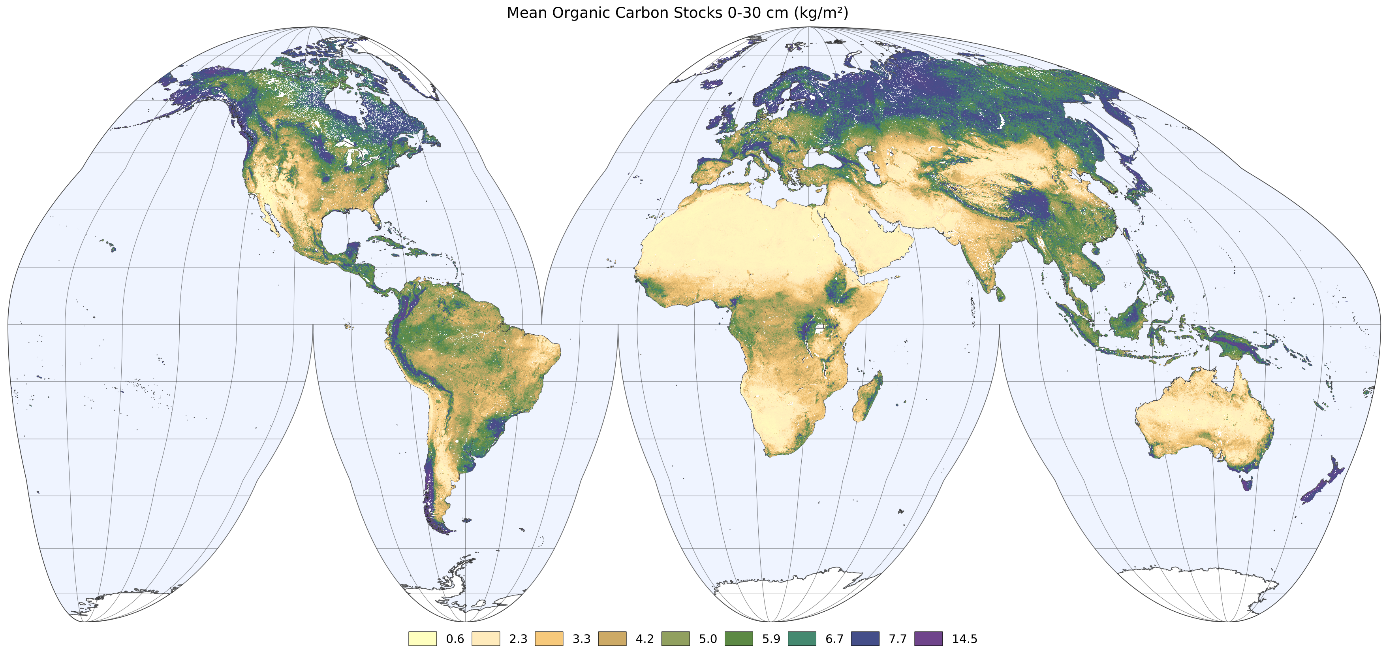
Background
The awareness that agricultural soils have potential to sequester carbon, has resulted in various initiatives to sequester organic carbon in agricultural lands. Yet, there is ongoing dialogue on the potential for sequestration in agricultural lands and a need for sharing knowledge and experiences how to make this happen.
Objectives
The EU H2020 CIRCASA project aimed to address this knowledge gap. The overall objective of CIRCASA was to strengthen synergies among researchers and promote the transfer of knowledge on carbon sequestration in agricultural soils. This would be achieved through four complementary activities. The first aimed at the strengthening of the international research community on soil carbon sequestration in relation to food security and climate change. The second aimed at improving our understanding of agricultural soil carbon sequestration and its potential for climate change mitigation and food security. The third activity engaged with stakeholders to co-design a strategic research agenda on soil carbon sequestration in agriculture. The fourth activity aimed to better structure the research cooperation in this field.
Through these activities CIRCASA produced outcomes to contribute to the implementation of the 2030 Agenda for Sustainable Development and of the Paris agreement within the UN Framework Convention on Climate Change (UNFCCC). CIRCASA achieved these goals while benefiting from several international initiatives: The Global Alliance on Agricultural Greenhouse Gasses (GRA), the Joint Programming Initiative on Sustainable Agriculture, Food Security and Climate Change (FACCE-JPI) and the 4 per 1000 Soils for Food Security and Climate Initiative (4p1000). Further, CIRCASA will benefit from the CGIAR research programmes on Climate Change Agriculture and Food Security (CCAFS) and Water, Lands and Ecosystems (WLE).
Activities
Initially, ISRIC has been contributing to the development of a Knowledge Information System (KIS) that will host knowledge on carbon sequestration in agricultural soils. During the First Annual CIRCASA Meeting (CIAT, Cali; 4-8 February 2019), project partners agreed with a shift of attention in ISRIC's work more in line with SoilGrids and soil C modelling.
Results: ISRIC's deliverables to date include:
- A technical report that specifies the requirements of the Knowledge Information System (CIRCASA Deliverable D1.2).
- A technical report to facilitate selection of the best suited knowledge information platform (PDF). This review led to the decision to use Dataverse as the information platform for CIRCASA’s KIS; this Dataverse will be implemented and managed by INRA, which also develops the OCP.
- Co-authorship on a research paper on 'How to measure, report and verify soil carbon change to realise the potential of soil carbon sequestration for atmospheric greenhouse gas removal' in Global Change Biology .
- Contributions to the 'Science base of a strategic research agenda - Executive Summary (CIRCASA Deliverable D1.3).
- Contribution towards an improved global soil dataset at 250m resolution (SoilGrids250m) to support SOC modelling.

Global distribution of soil organic carbon stocks (0-30cm; pre-release)
Consortium:
French National Institute for Agricultural Research (INRA), France (Lead)
International Institute for Applied Systems Analysis (IIASA), Austria
International Center for Tropical Agriculture (CIAT), Colombia
Ecologic Institute, Germany
Max Planck Society for the Advancement of Science (MPG), Germany
Aarhus University (AU), Denmark
Agricultural Research Centre for Development (CIRAD), France
European Commission, Joint Research Centre (JRC)
International Institute of Tropical Agriculture (IITA), Nigeria
Institut de recherche pour le développement (IRD), France
Laboratoire des RadioIsotopes, Madagascar
Wageningen University & Research Wageningen Economic Research, Netherlands
ISRIC - World Soil Information, The Netherlands
University of Aberdeen, United Kingdom
University of Leeds, United Kingdom
Agricultural Research Council (ARC), South Africa
Commonwealth Scientific and Industrial Research Organisation (CSIRO), Australia
Brazilian Agricultural Research Corporation (EMBRAPA), Brazil
Chinese Academy of Agricultural Sciences (CAAS), China
AgReasearch, New Zealand
Ministry For Primary Industries (MPI), New Zealand
M.V. Lomonosov Moscow State University (MSU), Russian Federation
Colorado State University System (CSU System), United States
Funding:
This project receives funding from the European Union's EU H2020 Research and Innovation Programme under the grant agreement n° 774378.
